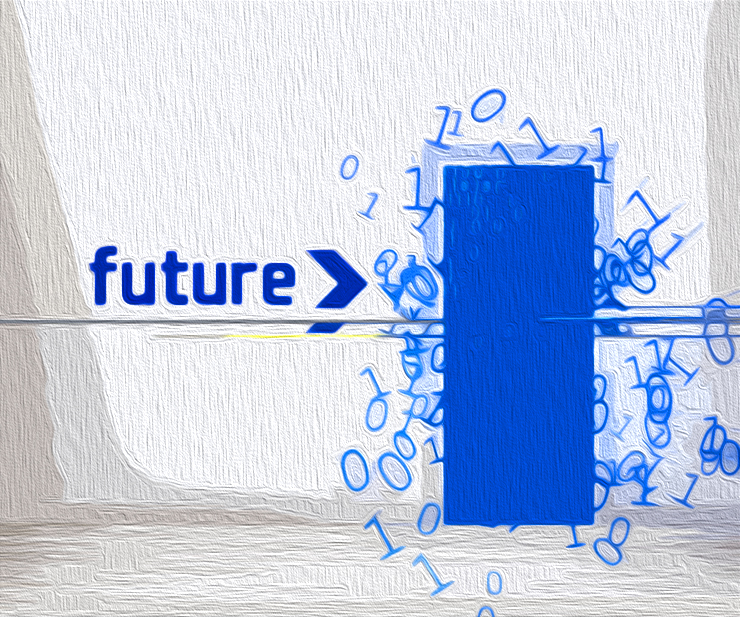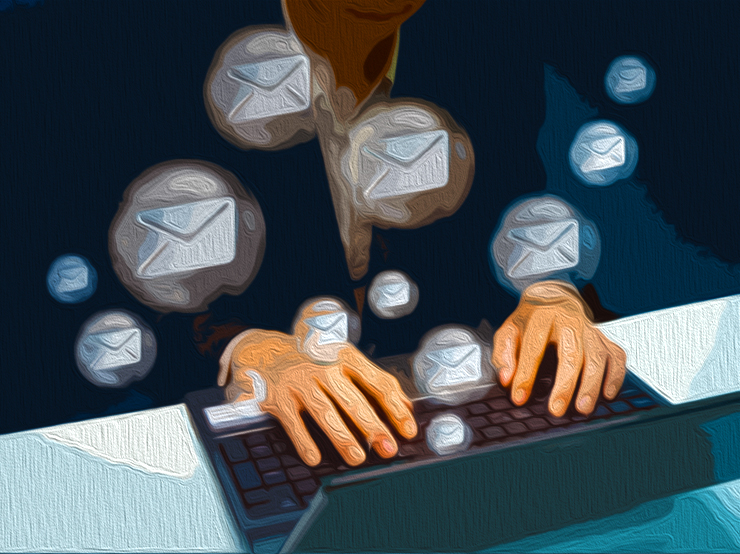Every success story has its roots in humble beginnings, and this one is no different. Let's dive into the inspiring journey of a high school dropout who defied the odds and created a $40 million events empire from scratch.
Embarking on the Journey
Our protagonist's story unfolds with a pivotal decision that altered the course of their life forever. Instead of treading the conventional path of finishing high school and pursuing a college education, they bravely stepped into the realm of entrepreneurship.
The Power of Choice
This landmark decision marked the beginning of an extraordinary voyage filled with challenges, triumphs, and invaluable lessons. It was a leap of faith that set the stage for what was to come.
Conquering Adversity
Navigating the landscape as a high school dropout presented a unique set of hurdles. The path to triumph was fraught with financial setbacks, moments of self-doubt, and obstacles that seemed insurmountable.
Strength in Resilience
Yet, our resilient entrepreneur pressed on. Armed with unwavering determination, tireless effort, and an unyielding spirit, they forged ahead and transformed their dream into a lucrative events empire valued at $40 million.
Persistence Pays Off
At the core of this remarkable narrative lies a vital lesson in persistence. Irrespective of one's starting point in life, the unwavering commitment to one's goals coupled with a refusal to surrender can lead to extraordinary accomplishments.
Ignite Your Passion
This tale stands as a testament to the boundless nature of success. Whether armed with a high school diploma or a college degree, what truly propels individuals forward is their zeal to pursue dreams relentlessly and shun mediocrity.
Seize the Moment
Feeling spurred on by this tale of triumph? Now is your moment to act. Embrace your passions, conquer your challenges, and pave the way for your unique success story. Who knows, you might just be the next high school dropout destined to craft a multimillion-dollar legacy.
Unveiling the Distinction Between Marketing and Advertising
While advertising promotes products with a strong call to action, marketing communicates a company's ethos, vision, and values to potential customers. Marketing weaves narratives to foster relationships, unlike advertising that focuses on product sales.
Exploring the Risks of Digital Marketing
Digital marketing, though rewarding, carries risks like safeguarding online reputation, ensuring original content, and protecting personal data. Vigilance, strong passwords, and caution in sharing information are key to mitigating these risks.
Crafting a Winning Ecommerce Marketing Blueprint
To excel in ecommerce marketing, define your offerings, allocate budgets for diverse strategies, seek expert guidance, implement proven tactics, and align your efforts with profit and growth objectives. Explore our ecommerce marketing tips for a sales surge!
The Vital Role of Marketing in Business Strategy
Marketing is the lifeblood of any business strategy, driving brand awareness and customer engagement. Beyond mere advertising, marketing shapes brand perception and market positioning, playing a pivotal role in business success.
Demystifying Search Engine Marketing
Search Engine Marketing (SEM) encompasses paid SEO, sponsored links, display ads, and social media promotions, forming a crucial facet of digital advertising strategies. Harnessing SEM can propel businesses to new heights in the online realm.
Frequently Asked Questions
What are 7 steps in an internet marketing strategy plan?
Internet marketing strategies are used for achieving business goals using online media. These steps include research, planning, implementation, monitoring and analysis. Each step is essential for effective internet marketing and should be performed regularly.
- Planning – This step involves identifying and developing a strategy for reaching your target audience. Also, think about who might be interested in your product or service.
- Research helps you understand your customer's needs and interests, so you can determine which products or services best match their expectations. It provides valuable insight into consumer behavior, trends, and other information.
- Implementation includes choosing a platform (e.g., Facebook) and determining where to place your ads. Once you've chosen your platforms, ensure they're set up correctly. You can also decide whether you want to spend money or pay per click.
- Monitoring – Monitoring lets you see how your efforts are performing. Google Analytics Analytics can be used to track traffic flow, conversion rates and customer demographics.
- The analysis allows you to measure results against benchmarks and previous performance levels. This step shows you how to improve areas where you are struggling.
- Optimization – Making changes to your website in order to attract more visitors is called optimization. Your site could be enhanced with new features, or changed in the way that users navigate.
- Evaluation – Evaluating your progress lets you see how well your campaign performs. Are there areas that could be improved? If not, then you may have reached your goal. You'll still need to address any issues.
Why is it so important that your brand is defined?
A brand is simply a promise that your company makes to its customers. A brand promises specific qualities and benefits that make your company stand apart from other companies. Your brand is what sets you apart from other companies in the industry.
A brand can give you authority and credibility. When prospective customers see your logo, they instantly recognize that your company stands behind its products and services. They trust you because they have respect for you.
Your company's culture can also reflect your brand. If your employees are passionately involved in your brand, then it is probably reflective of your passion for the product or service.
Your brand is more that words and photos. It is a promise your company keeps. It is a promise to deliver value to customers.
There are many things to think about when creating your brand. You want your name to clearly describe what your company does. Sweet Dreams Bakery is a good example of a bakery name. If you run a software business, however, you would probably choose DreamSpark Software.
Next, decide how you want your brand to be represented. Will your logo be easily identifiable? Will your colors match your corporate identity? Are you going to use logos?
Finally, consider the perception of your brand by your target audience. Is it possible to portray yourself as friendly, helpful, and approachable? Do you project professionalism and trustworthiness? Do you appear knowledgeable and experienced?
These are all questions to ask before you build your brand.
What are the main types?
Marketing is the process of communicating ideas and values to consumers. Advertising and marketing are often interchangeable these days. Marketing encompasses more than advertising. Marketing can include all communication methods that promote or market a product, service, or idea.
Marketing is made up of three components: promotion, branding, and distribution. Branding is the way a company presents itself to its target audiences. Promotion is the process of attracting attention to your brand via paid advertisements, promotions that are free, and other public relations activities. Distribution is how you get your message across to your target audience. It can be done through traditional methods like television, radio, print, and email, but new technologies have made this more accessible than ever.
What are the four types of marketing?
Marketing is divided into four categories: Traditional Advertising, Direct Mail, Public Relations, and Digital Marketing. Each category has its own objectives and should be used only for their intended purpose. You can combine them to achieve your goals.
Statistics
- Companies that use personalization are seeing revenue increases ranging from 6-10%. (blog.hubspot.com)
- A poll earlier this year found that 14% of older Gen Z's had bought an item in the previous six months based on an influencer's recommendation. (influencermarketinghub.com)
- 81% of brands employ affiliate marketing, and eCommerce sites are particularly good candidates. (blog.hubspot.com)
- From 2020 to 2022, eMarketer predicts that digital marketing will grow by 36% and take up 54% of marketing budgets! (marketinginsidergroup.com)
- Today, 81% of brands around the world have affiliate programs. (influencermarketinghub.com)
External Links
influencermarketinghub.com
moz.com
- SEO Learning Center, Moz
- [Case study] How we ranked #1 in a high-volume keyword in under 3 months – Moz
hubspot.com
neilpatel.com
How To
What is your marketing strategy?
Did you hear the phrase “If You build it, they'll come” many times?
Well, you're wrong.
Although building something is hard work, it's not enough if you want to attract customers. To grow your business, you must use Internet Marketing Principles to reach your target audience.
Internet Marketing Principles refer to the guidelines marketers use in creating websites, blogs, emails campaigns, and social media profiles that generate leads, and sales.
For example, if you're selling handmade jewelry online, you'd better learn to use these Internet Marketing Principles to drive traffic to your site, capture emails, and close sales.
Here are some examples.
- Content is king. You need to create compelling content. Copying someone else's content can cause you to lose credibility and be seen as a reliable source of information.
- Build trust – People trust recommendations from friends and family over advertisements and Adsense. Make sure you're trustworthy when recommending a product.
- Remember to be personal. People prefer to communicate with people, rather than robots. Make sure your website looks human, not robotic.
- Offer value – People only give away free stuff if they feel they're getting something valuable. In return for their contact information, you can offer something of value.
- Tell stories. Stories are powerful tools that connect audiences. They help you tell a story and connect to your audience.
- Giveaways – Giving away things helps build brand loyalty and awareness.
- Because they motivate users to act, it is important that you use call-to action buttons.
- You must test everything before your website goes live.
- Keep it simple. Simple is always better than complicated. Keep it simple whenever possible. Simpler websites are easier to update and maintain.
- Clear goals are easier to measure.
- Measure everything – Measuring your progress towards your goals is crucial to improving your marketing efforts.
- Concentrate on conversion. – Conversion is the act of turning web browsers into buyers.
- Get feedback. Feedback can help you improve your marketing efforts.
- Track results – You can track your results and identify areas you could improve.
- Repeat – The repetition of a pattern creates momentum.
- Optimize your marketing efforts – Optimization will ensure that your marketing efforts work effectively.
- Keep your brand consistent.
- Reward yourself – Rewards motivate you to continue doing well.
- Learn from other people – This is one way to avoid making the exact same mistakes.
- Never stop learning. Always look for new ideas and techniques.
- For sustainable growth, you must think long-term.
- Trust your intuition – Sometimes your intuition is the best tool to help you navigate your way through life.
- Every day can be viewed as a test. Although mistakes are inevitable they teach us lessons that we wouldn’t otherwise know.
- Recognize your weaknesses. Knowing your strengths and weak points will give you the insight to how to overcome obstacles.
- Don't get discouraged – Everyone fails at least once. But don't let failure discourage you. Keep trying again.
- Take risks – Taking risks is sometimes necessary to move forward.
- Enjoy the journey. It is vital to live a happy, fulfilled life.
- Be passionate – Passion fuels motivation.
- You must be true to who you are. This is key to building trust and relationships.
- Know Yourself – Self knowledge is vital for self improvement.
- Find your tribe – Finding a supportive community of like-minded individuals is invaluable.
- Make a vision board. Vision boards can be a great tool for visualizing your future.
- Ask questions. Questions are the gateway into knowledge.
————————————————————————————————————————————–
By: 7290
Title: Turning a High School Dropout into a $40 Million Events Mogul
Sourced From: internetlib.org/from-high-school-dropout-to-40-million-events-business/
Published Date: 4/5/2025 4:28:56 PM



